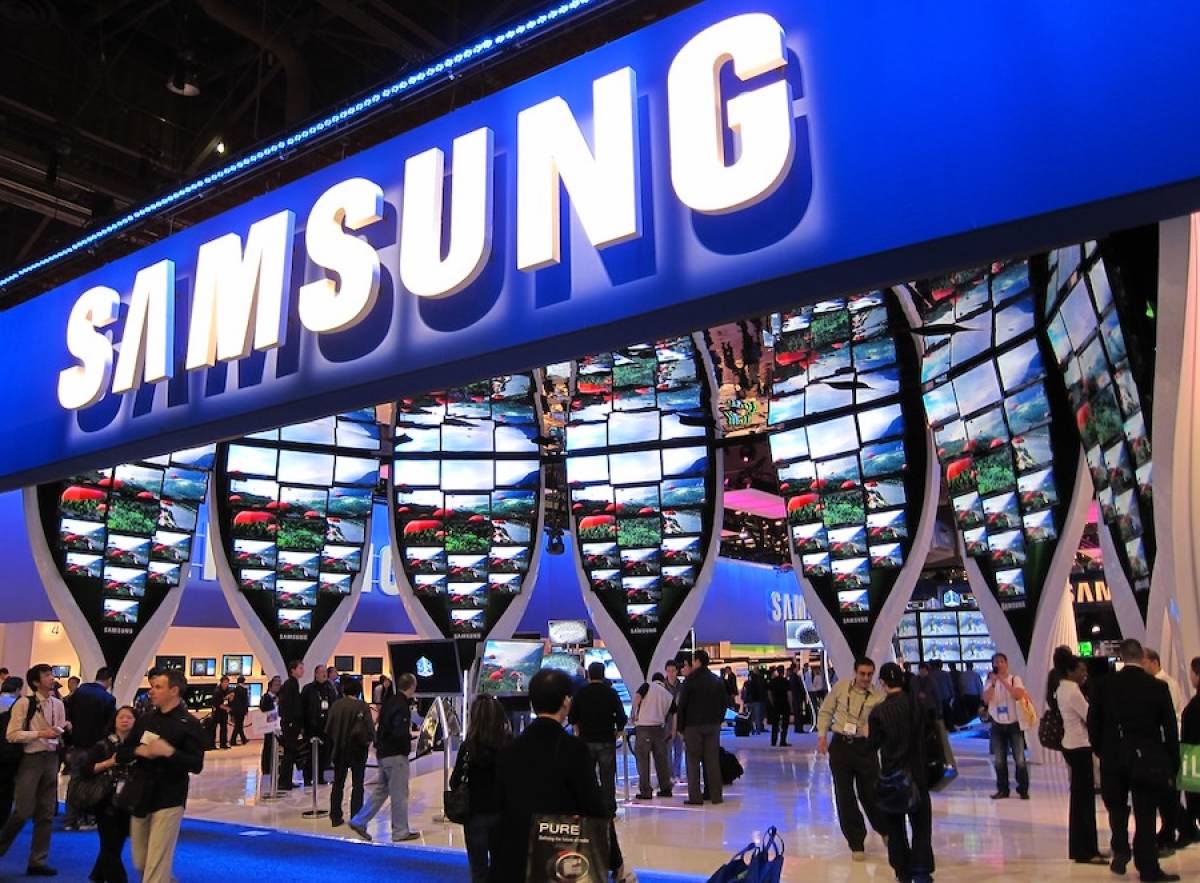Samsung Beats Apple as the Most Innovative Company [2023]

In a world faced with continuous change, companies need to take advantage of new trends and technologies in order to not stay stagnant. We’ve recently seen this with Apple’s new line of MacBook Pro laptops, with new industry-leading chips that will reportedly “Push the limits of computing.”. This is a great example of technological innovation, but which other companies are using innovation to their advantage?
Interested in finding out, the experts at FOREX.com commissioned research to uncover which companies are the most innovative, based on factors such as the number of US-registered patents in 2022, the number of R&D expenses over the last 12 consecutive months, and their last reported Intangible Assets.
Highlights from the research:
- Samsung beats Apple as the most innovative company, with the highest number of new patents in 2022 (8,513).
- This is despite Apple having spent the most on intangible assets out of all companies (£1.84 Trillion).
- Intel invested 31.6% (£13.6 billion) of their £43 billion revenue - the most out of all companies.
- The Electronics sector is the most frequent in the top 10 - 3 out of 10 companies dominate.
- E-commerce giant, Amazon, has invested the most in R&D in the last year (£65 billion)
Top 10 Most Innovative Companies:
Rank
Rank | CompanyName | Industry | 2022 Patent numbers | TTM R&D Expenses (in million GBP) | Last Reported Intangible Assets (in million GBP) | Innovation Score (out of 10) |
1 | Samsung | Consumer Electronics | 8513 | £16,169 | £14,296 | 9.25 |
2 | Apple | Consumer Electronics | 2313 | £23,586 | £1,846,030 | 9.03 |
3 | IBM | IT | 4743 | £5,266 | £8,435 | 8.33 |
4 | Johnson & Johnson | Pharmaceutical | 1377 | £11,872 | £37,167 | 8.23 |
5 | Toyota | Automotive | 3056 | £6,816 | £7,236 | 8.22 |
6= | Amazon | Internet Retail | 2051 | £65,633 | £4,900 | 8.12 |
6= | Microsoft | IT | 1888 | £21,840 | £7,527 | 8.12 |
7 | Sony | Consumer Electronics | 2638 | £5,085 | £13,027 | 8.07 |
8 | Intel | Semiconductors | 2501 | £13,617 | £4,157 | 7.85 |
9 | RTX Corporation | Aerospace/Defense | 2684 | £2,180 | £29,120 | 7.58 |
Consumer Electronic Companies Are the Most Innovative
The Dataset used can reveal that Samsung is the most innovative company, with an innovation score of 9.25/10. The consumer electronics giant, known for manufacturing televisions, mobile phones and audio equipment issued 8,513 new patents in 2022, which is the most out of all companies in the data. With the new Samsung AI technology, which will be featured in their Galaxy S24 smartphone due for release in 2024, it is no surprise to see the electronic giants rank so high. suggesting that there are new technologies on the horizon.
Competitor Apple is the second-most innovative company, with an innovation score of 9.03/10. Apple invested over £23 billion on R&D in the past year, which is the third highest out of companies in the top 10, and they reported over £1.84 Trillion in intangible assets in 2022, also ranking first. Apple is also investing in new materials, clean electricity, and low-carbon shipping with the aim of making all of its products carbon-neutral by 2030.
In third place with a score of 8.33/10 is IT giant IBM, known for its hybrid cloud and AI solutions. Registering 4,743 patents last year, half that of Samsung in first place, they have surprisingly lost their 29-year reign as the patent leader in the US. Despite this, IBM has shifted their focus to high-quality, high-impact innovation in the hybrid cloud, data and AI, automation, security, semiconductors, and quantum computing areas.
Johnson & Johnson is fourth, scoring 8.23/10 in the innovation index. They have the second-highest number of intangible assets (£37.16 billion) which is to be expected when they trademark brands such as Neutrogena, Listerine,and Tylenol. The health giants spent £11.87 billion on R&D last year, and they recently met with China and Japan as part of their plans to transform healthcare innovation in those countries through new therapies and AI technologies.
In fifth place is Toyota, scoring 8.22/10. The Automotive giant registered 3,056 patent numbers in the US last year, the third-highest in the top 10. They invested over £6.8 billion in R&D (the fourth-lowest) and have over £7.2 billion in intangible assets. As part of their future innovation, they recently announced the cities shortlisted for their ‘Sustainable Cities Challenge’ which aims to help cities improve access to opportunities, apply data-driven approaches for more resilient transport systems and reduce carbon.
Amazon Invests the Most in R&D
In joint sixth place with Microsoft with an innovation score of 8.12/10, is Amazon, who spent £65.63 billion on R&D in 2022, the most out of all companies analyzed and is 65% more than Apple and Samsung combined. This isn’t shocking considering their presence in both the retail and technology sectors. Just recently they rolled out a new AI-powered Image Generator for advertisers, which will allow for better ad performance, propelling themselves further into the AI market.
Matthew Weller, Head of Global Market Commentary at FOREX .com , commented on the data:
“The report's findings underscore Samsung's dominance in the innovation arena, with its leading number of patents reflecting a significant push in consumer electronics. This patent portfolio is not just a measure of quantity, but also a marker of Samsung's potential to disrupt markets and set new industry standards.
Meanwhile, Apple's considerable investment in intangible assets and sustainability initiatives showcases a strategic approach that blends cutting-edge innovation with environmental responsibility. These efforts not only fortify Apple's market position, but also resonate with a consumer base increasingly attuned to ethical practices.
Both companies exemplify how targeted investments in innovation can yield substantial market influence and drive industry trends.”




















